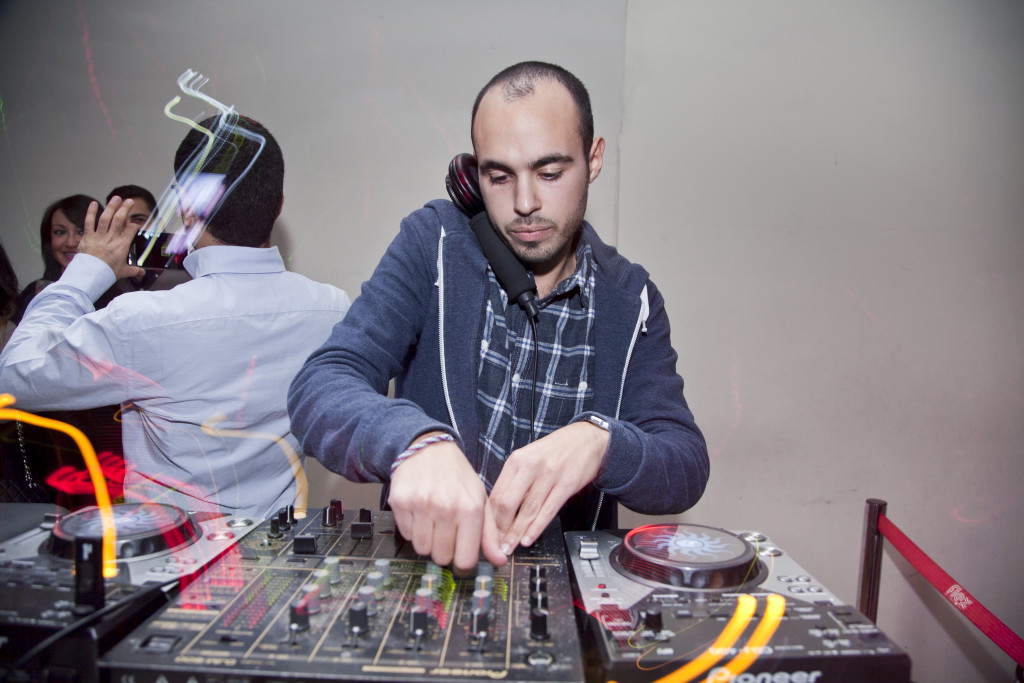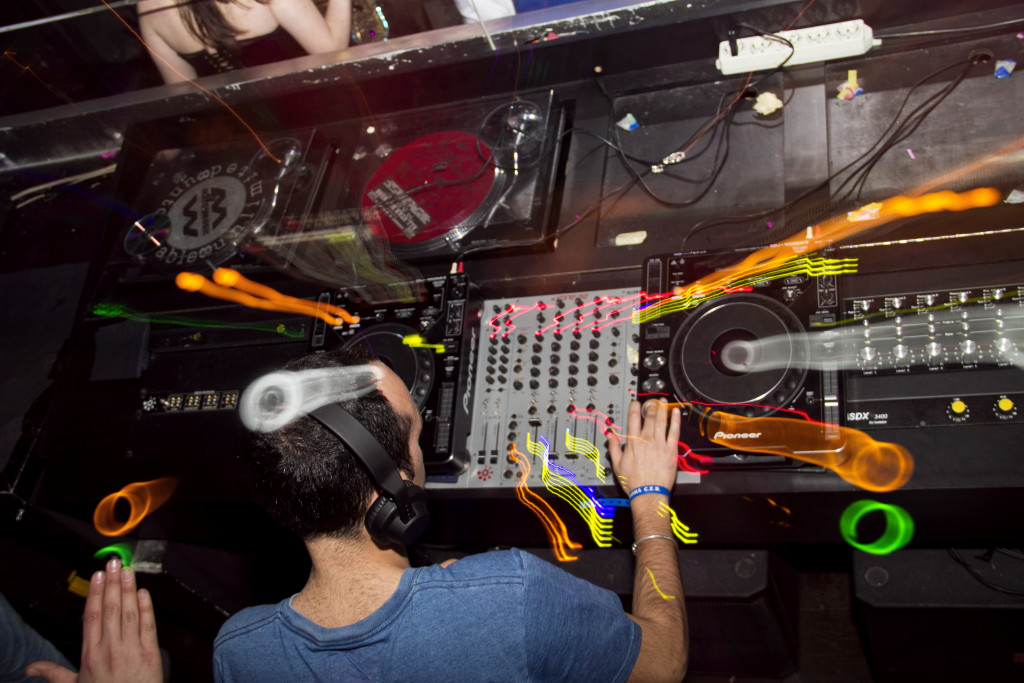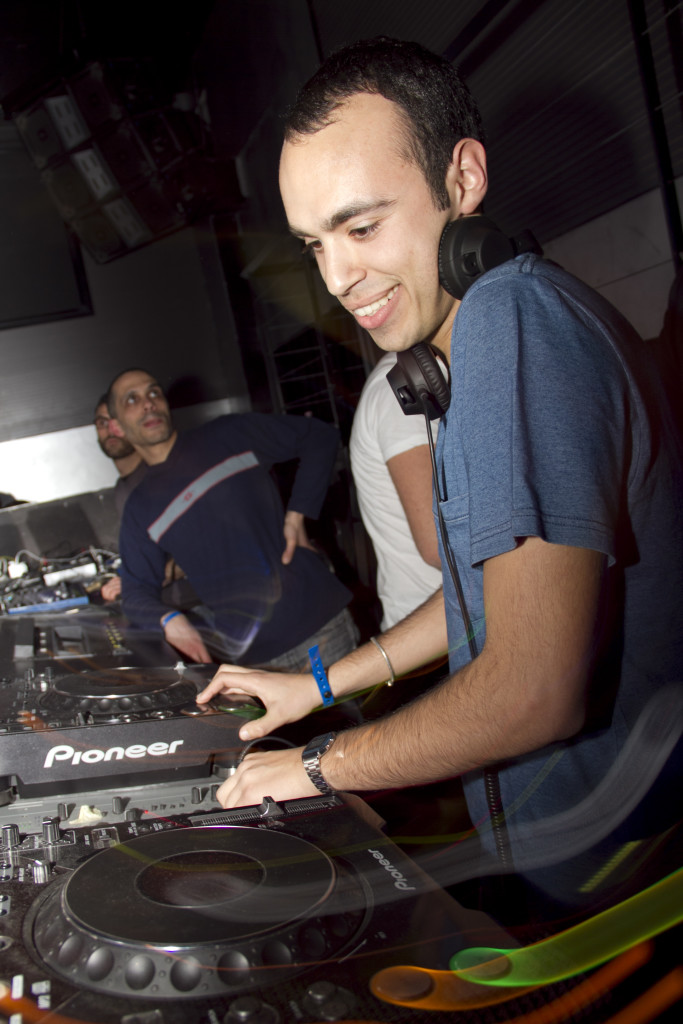Daniel Meghnagi, classe 1991, si interessa fin da piccolo alla musica Electro e Progressive, fino a decidere di voler diventare un dj e producer! La passione in primis, lo studio, la tecnica l’hanno portato a due pubblicazioni e alla voglia di migliorare sempre di più.
Partiamo subito senza indugi! Da dove nasce la passione per la musica elettronica e progressive house?
La passione è nata quando avevo 11-12 anni e andavo in vacanza con i miei genitori nei villaggi turistici. Ero sempre attratto da quella musica martellante che mettevano per far ballare “i grandi” a fine serata. Crescendo ho iniziato a seguire la musica dance alla radio e comprato i primi cd. Un giorno, mentre ero al liceo, mi sono chiesto: “Ma come si crea la musica elettronica?” e: “Cosa fa il dj?”. Da quel momento la mia curiosità è stata inarrestabile ed ogni volta che sono andato a feste di amici o la sera nei locali, è stata un’occasione per scambiare due chiacchiere con il dj e per “rubare con gli occhi”.
Nel 2008 inizi a suonare come dj, con il nome di Dani C. Raccontaci come è iniziato tutto!
L’estate del 2008, dopo aver rimandato tante volte, decisi di comprare la mia prima consolle, usata, per imparare a mettere a tempo i dischi e fare un vero dj set. Chiesi consiglio ad alcuni amici dj che mi spiegarono come usare teoricamente l’attrezzatura, ma poi fui io a dover imparare da solo la tecnica per fare un discreto mix. In autunno ebbi la fortuna, grazie ad un amico organizzatore, di fare la mia prima apparizione in discoteca, precisamente all’Happening, suonando soltanto mezz’ora all’inizio e alla fine di un party pomeridiano per liceali. Piano piano iniziai a prendere confidenza e a suonare più spesso anche in serate con più persone, come al Piper. Mi ritengo fortunato perché fin ad oggi ho avuto la possibilità di esibirmi in numerose discoteche di Roma ed in altre fuori città, sono stato resident dj all’Opengate per sei mesi e spesso ricevo chiamate per eventi privati.
Forse molti penseranno che fare il dj sia solo un hobby, un passatempo domenicale o, al massimo, del sabato sera. Al contrario dietro c’è un lavoro molto duro, ci vogliono sensibilità ed orecchio. Che tipo di preparazione, di studio, sono necessari per poter stare dietro una consolle?
La passione prima di tutto, perché senza quella non si arriva da nessuna parte! Ovviamente è necessario molto esercizio per affinare la tecnica e l’orecchio. Inoltre i dj devono aggiornarsi continuamente sulle nuove uscite e stare al passo con le canzoni del momento, quindi si tratta di spendere almeno un’ora al giorno ricercando nuove tracce nei vari portali e store digitali, e nelle classifiche internazionali. Per quanto riguarda, invece, l’attività di producer di musica elettronica, servono innumerevoli competenze: dalla conoscenza della teoria musicale a quella di tecniche di ingegneria del suono, passando per l’uso di software audio per creare musica. Da questo punto di vista non si smette mai di imparare e mi sento di dire che la mia preparazione non è ancora completa… ma ci sto lavorando!
Nel 2011 viene rilasciato il tuo primo EP dalla Octane Recordings. Come si è evoluta la tua carriera da quel momento?
Su suggerimento di un amico nel 2011 ho iniziato a mandare le mie produzioni a una casa discografica americana, la Soul Shift Music, che cercava nuovi talenti. Sebbene non erano ancora tracce di livello professionale, sono state pubblicate dalla loro sotto-etichetta, la Octane Recordings, sui vari portali digitali. Da quel momento mi sono impegnato specialmente nell’ambito della produzione, per migliorare le mie competenze e per raggiungere case discografiche più importanti. Nel 2012 è stato rilasciato da una casa discografica italiana, la Only the best records, il mio secondo EP, che è andato meglio dal punto di vista delle vendite e del gradimento da parte del web. In questo momento ho numerosi progetti pronti, ma sono diventato più severo nei miei confronti, e invio alle etichette discografiche solo le mie tracce migliori e quelle che ritengo possano rispettare lo standard qualitativo del mercato.
Quali sono gli artisti a cui ti ispiri maggiormente, quelli che influenzano o hanno influenzato le tue composizioni?
Da quando ho iniziato a seguire la musica dance sono stati molti gli artisti che mi hanno influenzato. Quelli che mi hanno davvero illuminato sono, però, gli ex Swedish House Mafia, cioè Axwell, Sebastian Ingrosso e Steve Angello. Loro, assieme ad altri artisti svedesi come Alesso, hanno praticamente fondato un filone della musica house, caratterizzato da break melodici, pur mantenendo degli attacchi potenti. Altri artisti a cui mi ispiro sono Hardwell, Nicky Romero, Dimitri Vegas & Like Mike, Tiesto, Marchus Schossow e Kryder che sono alcuni tra i primi al mondo nella scena Electro e Progressive. Infine non bisogna dimenticare producer italiani come Daddy’s Groove, Congorock, Merk & Kremont, Nari & Milani e Lush & Simon, che ammiro molto e che sarei onorato di incontrare.
Quando guardo suonare un dj so solo che davanti ha dei piatti e tutta una serie di pulsantini, cavi e cavetti! Che ne dici di spiegarci un po’ più tecnicamente che tipo di strumentazione usi?
Generalmente un dj ha bisogno di un mixer e di due lettori cd da dj o due giradischi, che ormai sono sempre più rari. Oggi sono molto diffusi i controller, cioè dei dispositivi che permettono di utilizzare il pc mentre si suona, mantenendo, però, le funzioni principali controllabili manualmente. Io, essendo nato nell’epoca dei cd, uso un mixer e due CDJ. Vi chiederete perché due lettori cd uguali? Il perché sta nel fatto che il compito di un dj è passare da una canzone all’altra mettendo a tempo le battute, senza far sentire alle persone questo cambio. Dunque in un lettore cd pre-ascolti, con la cuffia, la canzone che decidi di mettere dopo quella che sta suonando in quel momento e che sente tutta la discoteca. Tutto chiaro?
Oltre al tuo profilo Soundcloud, dove possiamo sentirti suonare dal vivo?
Ricevo numerose chiamate per feste private, ma ora suono meno spesso a serate pubbliche. Ultimamente mi sto concentrando più sulla produzione di musica e spero di emergere grazie a questa, senza sentirmi dire la frase più odiata da ogni dj: “Suoni solo se porti gente”!
Quale consiglio ti senti di dare a chi, come te, ha deciso di investire nella creatività?
Alla base di tutto ci deve essere la passione per la musica. Poi bisogna credere in ciò che si fa e non arrendersi alle prime difficoltà. Fare il dj/producer non è soltanto fare il “figo” in giro per il mondo viaggiando con jet privati e suonare di fronte a migliaia di persone, ma è piuttosto trasmettere qualcosa alle persone che ti ascoltano e che ballano sulla tua musica. Per carità, non nascondo che anche fare i tour abbia un certo fascino, ma io quando ho iniziato a suonare e produrre vedevo il djing più come una mia espressione musicale da sottoporre ad un pubblico pronto a giudicare.
Photo Credits: Ariel Nacamilli Ph.
[divider]ENGLISH VERSION[/divider]
Meghnagi Daniel, class 1991, is so interested in Electro and Progressive music since childhood that he decided to become a dj and producer! The passion above all, the study and the technique led him to two publications and the desire to get better and better.
Where does your passion for electro music and progressive house come from?
My passion began when I was 11-12 years old and I used to go on holiday with my parents in those tourist villages. I was always attracted to that thumping music that they played for the “big” ones at the end of the evening. Growing up I started to follow the dance music on the radio and bought my first CDs. One day, while I was in high school, I asked myself: “But how can electronic music be created?” What does a DJ do?”. From that moment on, my curiosity was unstoppable, and every time I went to friends’ parties or to clubs in the evening, it was a chance to chat with the DJs and “steal with my eyes.”
In 2008 you start playing your music as Dj Dani C. Tell us about it!
During summer 2008 I finally decided to buy my first console to learn how to make a real DJ sets. I asked some DJs friends of mine for advide and they explained to me how to use the equipment in theory, but it was all up to me to learn how to make a good mix. In Fall, I had the good opportunity, thanks to a friend, to make my first appearance at a disco, precisely the Happening, playing only half an hour at the beginning and at the end of an afternoon party for high schoolers. Slowly I began to gain confidence and to play more often in the evenings in front of more and more people, like i did at Piper. I fell lucky because beacuse i had the possibility to play my music in several discos in Rome and out of town so far. I’ve been resident dj at the Opengate for six months and i often get calls for private events.
Perhaps many will think that DJing is just a hobby or a pastime on Sundays or Saturday evening. On the contrary, it takes a very hard work. What kind of preparation and study are necessary to be able to stand behind a console?
Passion first of all! You will not get anywhere without passion! Obviously you need a lot of exercise to refine the technique. In addition, the DJ must continually update on new releases and keep up with the songs of the moment, then it comes to spending at least an hour a day looking for new tracks in various portals and digital stores, or in international rankings. Being a producer of electronic music requires numerous skills: the knowledge of music theory, the techniques of sound engeneering and the use of audio software to create music. From this point of view, you never stop learning and I would say that my preparation is not complete yet, but I’m still working on it!
In 2011 you got your first EP released by Octane Recordings. How has your career changed?
I decided to follow a friend’s advice and in 2011 I started sending my productions to an American label, the Soul Shift Music, which was looking for new talents. Although mine were not yet professional tracks, they have been published by their sub-label, Octane Recordings, on various digital portals. Since that time I tried to improve especially my skills in the production to impress major record companies. In 2012, it was released by an italian record company, the Only the best records, my second EP, which was much better in terms of sales and popularity on the web. Right now I have several projects, but I became more severe with myself, and i keep sending to record labels only my best tracks and those that i believe can comply with the quality standards of the market.
Who are the artists that inspire you the most, the ones that affect or have affected your compositions?
Since I started following dance music there have been many artists that have influenced me. The ones I learnt the most from are the ex Swedish House Mafia, namely Axwell, Sebastian Ingrosso and Steve Angello. They, along with other Swedish artists such as Alesso, have practically founded a genre of house music characterized by melodic break, still maintaining the powerful attacks. Other artists who have inspired me are Hardwell, Nicky Romero, Dimitri Vegas & Like Mike, Tiesto, Marchus Schossow and Kryder who are some of the best in the world’s scene in Electro and Progressive music. It is not to forget Italian producers such as Daddy’s Groove, Congorock, Merk & Kremont, Nari & Milani and Lush & Simon, who I really admire and I would be honored to meet.
When I look at a Dj playing I just know that he has in front of him some dishes and a series of small buttons, cables and wires! Caould you explain a bit more what kind of equipment do you use?
Generally a DJ needs a mixer and two CD players or two turntables, which are now increasingly rare. Controllers have become very popular, that are devices that allow you to use your PC when you play, keeping, however, the main functions manually controlled. Being born in the era of the CD, I use a mixer and two CDJ. You may wonder why two cd players alike? The reason is that the job of a DJ is to go from one song to another, without making people hear this change. So in a cd player you can pre-listen with a headphones the song that you want to put after the on which is already playing at that time and that everyone is hearing. Is it all clear?!
Besides your profile Soundcloud, where can we hear you play alive?
I receive numerous calls for private parties, but now i play less often in public events. Lately I’ve been focusing much more on producing music and I hope to emerge through this without being told the most hated phrase by every dj: “you can play only if you bring people”!
What advice would you give to those who, like you, decided to invest in creativity?
There has to be passion for music. Then you have to believe in what you do and do not give up at the first difficulty. Being a dj/producer is not only doing the “cool” life around the world traveling in private jets and playing in front of thousands of people, but it means transmit something to the people who listen to you and dance on your music. I’m not denying that the tour has a certain charm, but when I started playing I saw the djing and producing more as my musical expression to refer to an audience ready to judge.
Traduzione a cura di Mirko Morelli.




